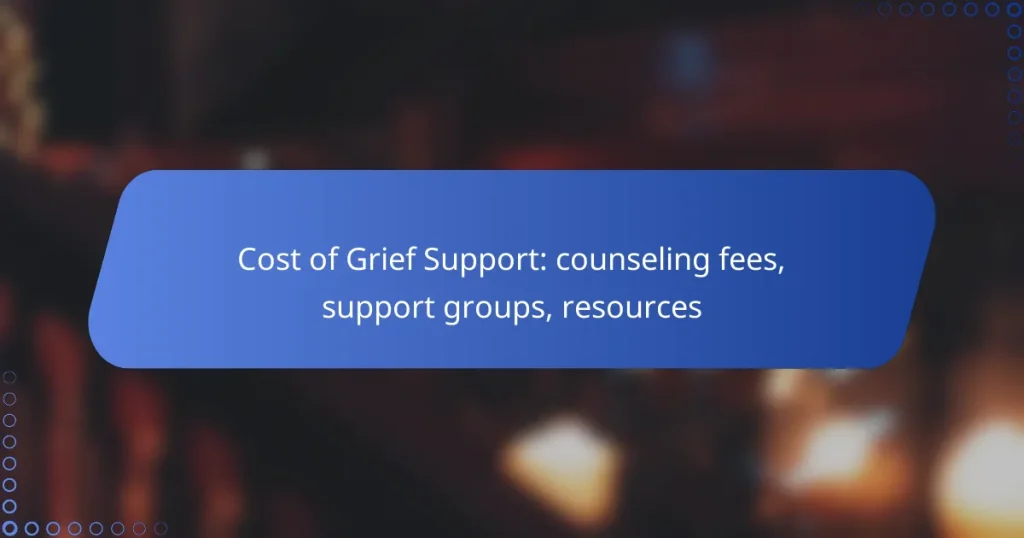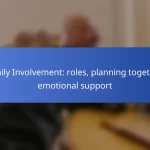Navigating the costs of grief support can be challenging, as fees for counseling and support groups in Canada vary widely. Individual counseling sessions typically range from CAD 100 to CAD 250, while support groups may be free or cost up to CAD 50 per session, depending on their structure and facilitation. It’s essential to consider the qualifications and experience of grief counselors to ensure you receive the appropriate support during this difficult time.
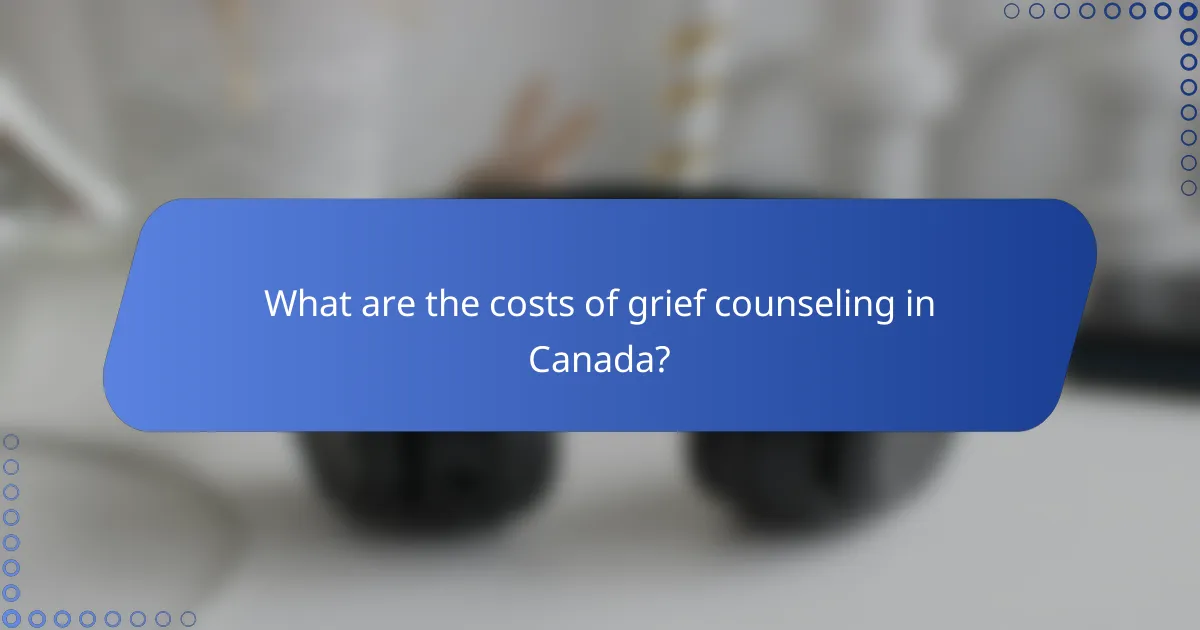
What are the costs of grief counseling in Canada?
The costs of grief counseling in Canada can vary widely based on several factors, including the counselor’s qualifications and location. Generally, individuals can expect to pay anywhere from CAD 100 to CAD 250 per session, depending on the type of service and the provider’s experience.
Average hourly rates for grief counseling
On average, grief counseling sessions in Canada typically range from CAD 100 to CAD 200 per hour. Some highly experienced therapists or specialized clinics may charge upwards of CAD 250 per hour. It’s advisable to check local rates as they can differ significantly between urban and rural areas.
Many counselors offer sliding scale fees based on income, making services more accessible for those in need. It’s beneficial to inquire about these options when seeking support.
Factors affecting counseling fees
Several factors influence the fees for grief counseling, including the therapist’s qualifications, experience, and the type of therapy provided. For instance, licensed psychologists may charge more than social workers or counselors with less formal training.
Location also plays a crucial role; urban centers often have higher rates due to increased demand and cost of living. Additionally, the length and frequency of sessions can affect overall costs, with longer or more frequent sessions leading to higher total expenses.
Insurance coverage for grief counseling
In Canada, some health insurance plans may cover grief counseling, particularly if the service is provided by a registered mental health professional. It’s essential to check with your insurance provider to understand the specifics of your coverage, including any limits on the number of sessions or types of therapy included.
For those without insurance, many community organizations and non-profits offer low-cost or free grief support services. Exploring these options can provide valuable assistance without the financial burden.
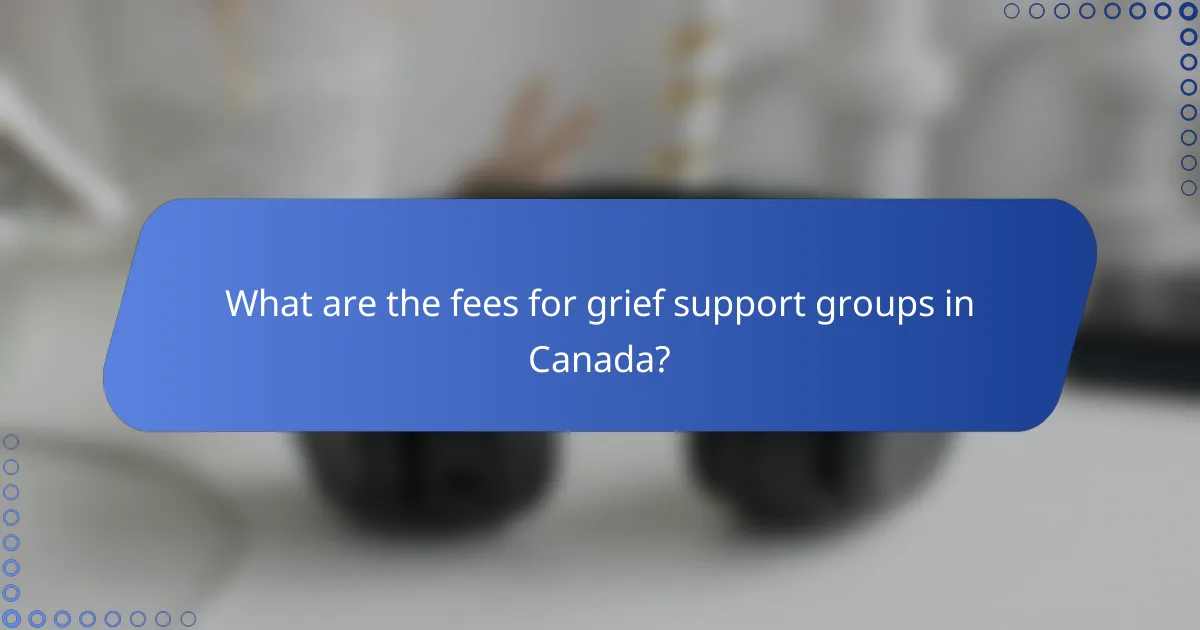
What are the fees for grief support groups in Canada?
The fees for grief support groups in Canada can vary significantly based on the type of group and its location. Generally, costs range from free to around CAD 50 per session, depending on whether the group is facilitated by a professional or is peer-led.
Typical costs for support group sessions
Support group sessions in Canada typically range from CAD 10 to CAD 50 per meeting. Professional-led groups may charge higher fees, often reflecting the facilitator’s qualifications and experience. Some organizations may offer sliding scale fees based on income, making support more accessible to those in need.
For example, a weekly session at a community center might cost CAD 15, while a specialized grief counseling group led by a licensed therapist could charge CAD 40 per session. It’s advisable to inquire about any additional costs, such as materials or registration fees.
Free vs. paid support group options
Many free support groups are available through community organizations, hospitals, or religious institutions. These groups often rely on volunteers or trained facilitators who provide a supportive environment without charge. However, the availability and quality of free options can vary widely.
Paid support groups, while often more structured and professionally led, may offer additional resources, such as personalized guidance or access to specialized materials. Weighing the benefits of professional support against the accessibility of free options can help individuals choose the right fit for their needs.

How to choose a grief counselor in Canada?
Choosing a grief counselor in Canada involves considering their qualifications, experience, and approach to therapy. Look for professionals who specialize in grief and loss, ensuring they can provide the support you need during this difficult time.
Qualifications to look for in a grief counselor
When selecting a grief counselor, prioritize those with relevant qualifications such as a degree in psychology, social work, or counseling. Certifications in grief counseling or membership in professional organizations can also indicate a commitment to this specialized field.
Experience is crucial; seek counselors who have worked with clients facing similar losses. Additionally, consider their therapeutic approach, whether it’s cognitive-behavioral therapy, narrative therapy, or another method that resonates with you.
Questions to ask before hiring
Before hiring a grief counselor, ask about their experience with grief and loss. Inquire how they tailor their approach to individual needs and what methods they use to facilitate healing. Understanding their philosophy can help you determine if it aligns with your expectations.
Discuss logistics such as session frequency, duration, and fees. Grief counseling in Canada can range from CAD 100 to CAD 250 per session, so clarify costs upfront. Also, ask about their cancellation policy and whether they offer sliding scale fees based on income.
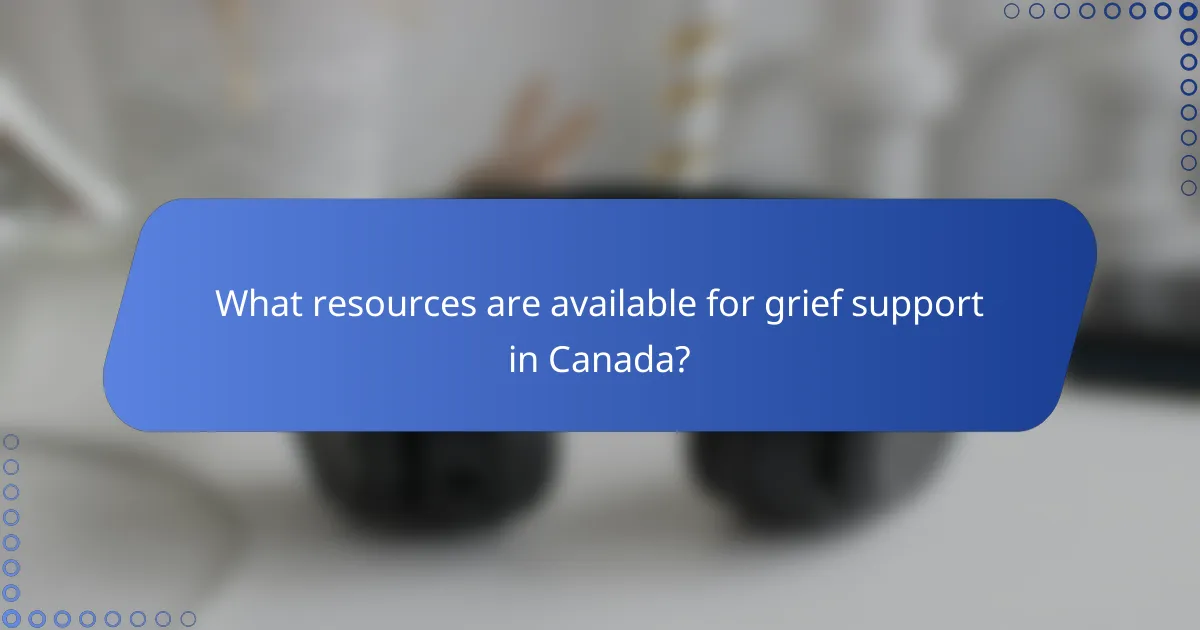
What resources are available for grief support in Canada?
In Canada, various resources are available for grief support, including online platforms, local organizations, and community groups. These resources can provide emotional assistance, counseling, and a sense of community for those navigating their grief journey.
Online resources for grief support
Many online platforms offer grief support through forums, articles, and virtual counseling. Websites like Grief.com and Counselling BC provide valuable information and access to licensed therapists who specialize in grief counseling.
Additionally, social media groups and online communities can connect individuals with others experiencing similar losses, fostering a sense of belonging and shared understanding. These resources are often free or low-cost, making them accessible to a wide audience.
Local organizations offering grief support
Across Canada, numerous local organizations provide grief support services, including hospices, community centers, and faith-based groups. Organizations like the Canadian Virtual Hospice and Bereaved Families of Ontario offer both in-person and virtual support options tailored to various needs.
Many of these organizations host support groups, workshops, and one-on-one counseling sessions, often at little to no cost. It’s advisable to check with local health services or community boards to find specific resources available in your area.

What are the benefits of grief counseling?
Grief counseling provides individuals with essential support during their mourning process, helping them navigate their emotions and find healthy coping mechanisms. It can lead to improved emotional well-being and resilience in the face of loss.
Emotional support and coping strategies
Grief counseling offers a safe space for individuals to express their feelings and experiences related to loss. Counselors can help clients identify and implement coping strategies tailored to their unique situations, such as journaling, mindfulness, or engaging in support groups.
Support groups, often facilitated by professionals, can foster a sense of community among those experiencing similar losses. Sharing experiences can alleviate feelings of isolation and provide practical advice on managing grief.
Long-term mental health benefits
Engaging in grief counseling can lead to significant long-term mental health benefits, including reduced symptoms of anxiety and depression. By addressing grief in a structured environment, individuals can develop healthier emotional responses and resilience.
Studies suggest that those who participate in grief counseling may experience improved overall life satisfaction and better relationships with others. This proactive approach to mental health can help individuals move forward while honoring their loved ones.
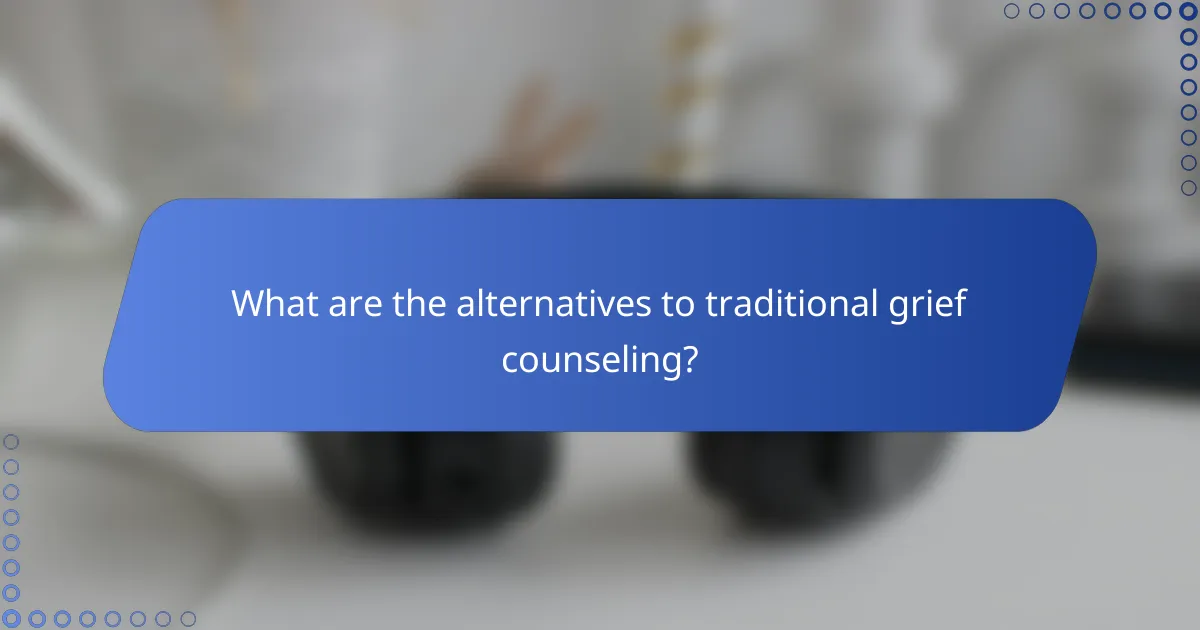
What are the alternatives to traditional grief counseling?
Alternatives to traditional grief counseling include peer support networks and online grief support platforms. These options can provide valuable emotional assistance and community connection without the formal structure of counseling sessions.
Peer support networks
Peer support networks consist of groups where individuals share their grief experiences and offer mutual support. These networks can be found locally, often through community centers, religious organizations, or hospitals, and typically do not require any fees.
Participants in peer support networks benefit from shared experiences, which can foster a sense of belonging and understanding. It’s essential to choose a group that aligns with your specific needs, such as those focused on particular types of loss or demographics.
Online grief support platforms
Online grief support platforms provide virtual spaces for individuals to connect and share their experiences. These platforms often include forums, chat rooms, and video support groups, making them accessible from anywhere with an internet connection.
Many online platforms are free or operate on a subscription basis, typically ranging from low monthly fees to one-time donations. When selecting an online support platform, consider factors such as user reviews, the availability of trained moderators, and the variety of resources offered, such as articles or webinars.

How to budget for grief support services?
Budgeting for grief support services involves understanding the costs associated with counseling, support groups, and additional resources. By evaluating your financial situation and the types of services available, you can create a practical plan that meets your needs.
Understanding counseling fees
Counseling fees can vary widely depending on the provider’s qualifications, location, and session length. On average, individual therapy sessions in the U.S. may range from $50 to $250 per hour. Consider whether your insurance covers any of these costs, as this can significantly reduce your out-of-pocket expenses.
When budgeting for counseling, factor in the frequency of sessions. Weekly visits may be necessary initially, which can add up quickly. If cost is a concern, look for sliding scale options or community mental health services that offer lower fees based on income.
Support groups and their costs
Support groups often provide a more affordable option for grief support, with many being free or requiring a nominal fee. These groups can be led by professionals or peers and typically meet weekly or bi-weekly. Check local community centers, hospitals, or online platforms for available options.
While support groups can be beneficial, they may not replace the need for individual counseling. Consider attending both to gain comprehensive support. If you find a group that resonates with you, it can be a valuable resource without straining your budget.
Additional resources for grief support
In addition to counseling and support groups, various resources can aid in your grief journey. Books, online courses, and workshops can provide insights and coping strategies at a relatively low cost. Many libraries offer free access to grief-related literature.
Online resources, including forums and websites dedicated to grief support, can also be helpful. Many of these platforms are free and allow you to connect with others experiencing similar losses. However, ensure that any online resource you use is reputable and offers accurate information.
